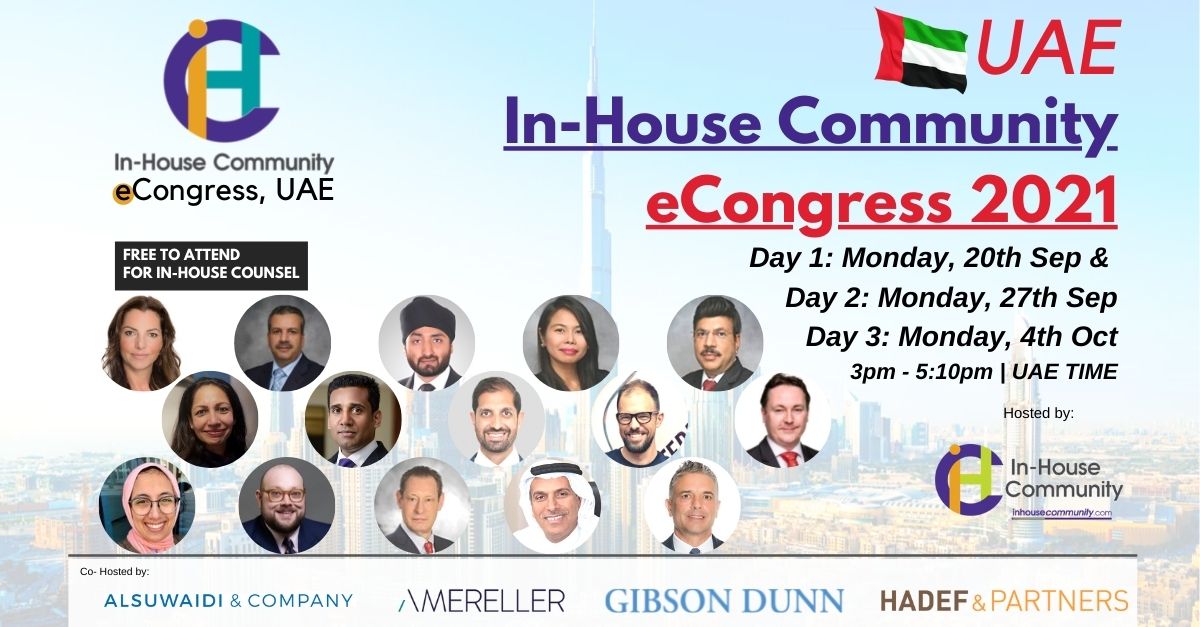January 14, 2022
1. What are the M&A Trends in the Philippines over the last 12 months? The accelerated growth in the digital economy driven by Covid-19 has spurred M&A deals in the technology, telecommunications and logistics sectors. Likewise, there is sustained growth of M&A activity in power & energy, transportation, financial services, real estate development, manufacturing and healthcare. Inbound M&A transactions are still mostly coming from China, Japan and Southeast Asia, with a smaller number from other parts of Asia, Europe and the US. We also perceive an increased interest in the past few years from global private equity funds acquiring minority stakes in Philippine businesses. An emerging trend in the Philippine cross-border M&A market is a focus on environment, social and governance (ESG) aspects of the target, particularly on compliance, both historical and forward-looking. There is a move to require publicly-listed companies in the Philippine Stock Exchange to report their ESG index as a guide for sustainability-focused investors. Philippine companies with foreign investors are now deliberately incorporating ESG standards and reports in company policies. Another recent M&A trend is the requirement for warranties and indemnities insurance, which are now being offered by a few insurance companies for Philippine M&A deals. 2. How has Covid-19 impacted M&A activities in the Philippines? The most significant impact of Covid-19 to Philippine M&A is the substantial but temporary increase in thresholds for compulsory merger control notification with the Philippine Competition Commission (PCC), intended to encourage M&A despite the contraction of the economy. The prior thresholds for merger notification – ₱6 billion for Size of the Party (SoP) and ₱2.4b for the Size of Transaction... December 24, 2021
Presentation by AMERELLER at the UAE In-House Community eCongress 2021: Trends in Employment Law in the UAE Including: Updates on UAE employment law and common challenges for companies today Changes to the employment relationship due to Covid-19 Managing difficult HR situations – workforce reduction, changing employment terms and conditions, compensation and benefits, terminations Enforcing non-compete restrictions Presenting Firm: AMERELLER Speaker: Jonathan P. Noble The UAE In-House Community eCongress 2021 was attended by over 400/150 in-house counsel in UAE and the wider region. Jonathan P. Noble from AMERELLER presented on Trends in Employment Law in the UAE. You can watch the video of the presentation above or by clicking here. If you have any questions or would like to receive a copy of the presentation slides, please contact the presenters directly. Their contact information is below. Jonathan P. Noble, Partner Jonathan P. Noble is a local partner in the Dubai office. He advises numerous multinational companies and regional powerhouses on international transactions, company formation, agency and distribution, joint ventures, and corporate governance in the UAE, GCC and broader MENA region. +971 4 432 3671 Enoble@amereller.com AMERELLER One by Omniyat, 14th Floor Business Bay, P.O. Box 97706, Dubai, United Arab Emirates... December 24, 2021
Any expats want to work in Indonesia needs to have a work permit and a stay permit. This article will cover anything that you need to know regarding expatriate work permit and stay permit in Indonesia. New regulations regarding expatriate work permit have been issued, namely: Indonesian Government Regulation Number 34 of 2021 on the Expatriate Utilization (“GR 34/2021”) and Indonesian Manpower Minister Regulation Number 8 of 2021 on the Implementing Regulation of GR 34/2021 (“MMR 8/2021”). We will explain the important points regulated in GR 34/2021 and MMR 8/2021. 1. Types of employers that are permitted to hire expats in Indonesia MMR 8/2021 regulates types of employers who are eligible to hire expats in Indonesia, as follows: governmental institution, foreign country representative, and international body foreign trading representative office, foreign company representative office, and foreign news office carrying out activity in Indonesia foreign private company carrying out business in Indonesia legal entity in the form of a limited liability company or a foundation established under Indonesian laws or foreign business entity as regulated under Indonesian laws social body, religious body, education body, and cultural body entertainment management business any other business entities that are allowed to hire expatriate 2. Employer’s Obligations Every employer hiring an expatriate need to: have an expatriate utilization plan (Rencana Penggunaan Tenaga Kerja Asing, “RPTKA”) approved by the Minister of Manpower or the relevant authority pay expatriate utilization compensation fund (Dana Kompensasi Penggunaan Tenaga Kerja Asing, “DKPTKA”) in the amount of US$100/position/month/person in accordance with the expatriate’s working period in Indonesia process a stay permit for the expatriate appoint an Indonesian worker accompanying the... December 15, 2021
By virtue of Republic Act No. 7916, the Philippine Economic Zone Authority (PEZA) was created to establish various economic zones and attract legitimate foreign investments into the country. The PEZA administers certain incentives to local enterprises that operate within these economic zones and helps facilitate their respective business operations. In line with these policies, the PEZA exercises the authority to issue work visas to their foreign personnel, particularly those who hold executive positions (i.e. Presidents, Vice-Presidents, Treasurers, General Managers, or their equivalents), or whose employment is supervisory, technical, or advisory in nature. On 11 November 2021, the PEZA and the Bureau of Immigration (BI) entered into a Memorandum of Agreement (MOA) to provide efficient and harmonized rules on the issuance of work visas to qualified foreign nationals and their dependents. Previously, these foreign nationals were qualified to secure 47(a)(2)(PEZA) visas under the authority of the Department of Justice (DOJ). Under the new rules, however, these foreign nationals shall now secure PEZA Visas (PV) from the PEZA and BI. Among the notable changes introduced in the MOA is the longer validity of the PV. The PV is valid for a maximum period of two (2) years, and is coterminous with the period stated in the foreign national’s employment contract. The application shall also come with a notarized certification which confirms that the Company’s total number of foreign personnel does not exceed five percent (5%) of its total workforce. Marriage and birth certificates of the PV applicant’s dependents are now required to be authenticated/apostilled, if issued abroad. Notably, English-translated certificates were previously accepted by the PEZA even if they were unauthenticated.... December 15, 2021
“Environmental, Social, and Governance,” or “ESG” has increasingly become a topic of discussion. The driving force for the fast-paced development of ESG stems from the 2030 Agenda for Global Sustainable Development Goals (SDGs), adopted by all United Nations Member States in 2015, and the Paris Agreement. The Paris Agreement, which came into force in 2016, has been joined by 191 Parties and creates commitments from all countries, including developing nations such as Thailand, to reach their greenhouse gas emissions reduction targets. Thailand launched a five-year National Economic and Social Development Plan to adhere to the 20-year National Strategy Framework (2017-2036), meet SDG targets, the Thailand 4.0 Policy, and other reforms. While the momentum for ESG started in the governmental sector, all stakeholders (including the private sector, financial institutions, and investors) are key players in driving and maintaining sustainable practices. Lessons from the Covid-19 pandemic are also an accelerator for companies to shift their focus to become more resilient to crises. By emphasizing responses to social and environmental factors rather than traditional corporate operational outlooks, visionary companies are developing a compass to be better equipped to respond to future crises and steer through volatility. What does ESG entail? ESG encompasses a broad range of issues, for example: Environmental: climate change, pollution, deforestation, energy efficiency, waste management, and natural resources utilization Social: human rights, labor standards, community relations, gender and diversity, data protection and privacy, health, and safety measures Governance: corporate governance, compliance, bribery and corruption measures, executive compensation, taxation approaches, lobbying, political contributions, and whistleblower schemes. In brief, environmental criteria are used to evaluate a company’s performance as a steward... December 15, 2021
On April 23, the Standing Committee of National People’s Congress issued the Decision of Revision of Eight Laws, which includes the fourth revision of the PRC Trademark Law (the “TML”). The revision attracted wide attention from the international IP communities as it addressed the bad-faith trademark registration issue, one of the most significant challenges to trademark protection of international brands in China. In addition, On April 24, the Beijing High Court issued comprehensive and broad guidelines for Authorization and Confirmation of Trademark (the “Guidelines”). The following is a discussion and analysis related to bad faith application on the Guidelines. I. Regulation against Bad Faith Application and Registration New Articles of TML Provision for rejecting bad faith application and registration without intent-to-use (NITU) Article 4 Natural persons, legal persons or any other organizations that need to obtain exclusive rights to use trademark for their commodities or services in the course of their manufacturing and business activities shall apply to a trademark bureau for trademark registration. Any application for trademark registration that is malicious and is not filed for the purpose of use shall be rejected [1]. Bad faith application without intent to use shall be regarded as a legal ground for opposition and invalidation Article 33 A prior right holder or a stakeholder who holds that a preliminarily validated and gazetted trademark violates the provisions of the second and third paragraphs of Article 13, Article 15, the first paragraph of Article 16, Article 30, 31 or Article 32 of this Law, or any person who held that a preliminarily validated and gazetted trademark violates the provisions of Article 4, 10,... Upcoming Events
Recent Past Events
















